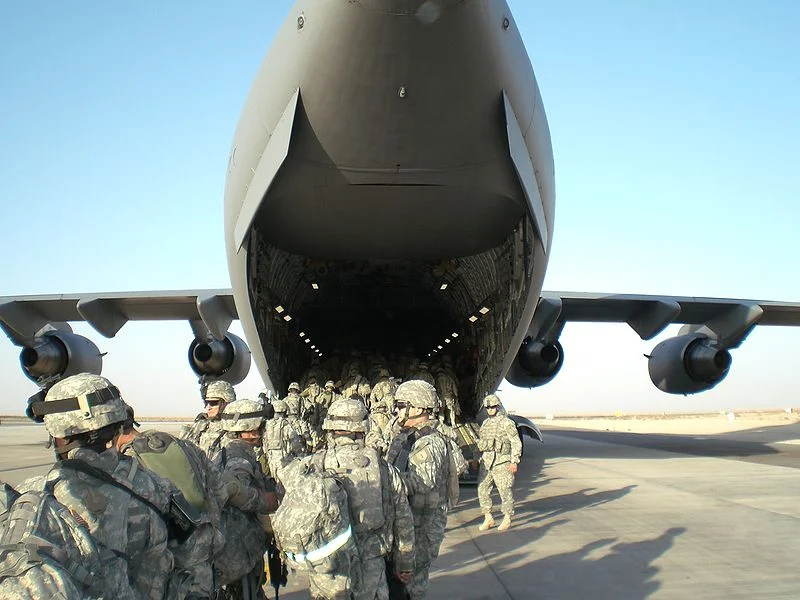This post is part of the Mental Health Monday series, in which iustitia examines one aspect of the intersections between mental health and the law. You can find previous posts here.
The United States Department of Veterans Affairs (VA) estimates between 11 and 20 percent of veterans who served during Operation Enduring Freedom (OEF) or Operation Iraqi Freedom (OIF)[1] have Post-traumatic Stress Disorder (PTSD). Of those veterans with PTSD, more than 20 percent self-medicate with drugs and alcohol to the point they develop a Substance Use Disorder (SUD). Sadly, OIF/OEF veterans suffering from PTSD make up a larger percentage of homeless veterans compared to other war-eras.
Given the increased rates of mental illness and homelessness, it is easy to understand why OIF/OEF veterans with PTSD, burdened with a unique set of obstacles to care and recovery, may find themselves as criminal defendants following their service.
In response to the increase of OIF/OEF veterans entering the criminal justice system, a handful of courts across the nation began to form veteran-specific court programs. In 2011, the Veterans Treatment Court at the Montgomery County Court of Common Pleas (Veterans Court) in Pennsylvania was established. This spring, in connection with my work as a veterans advocate, I was honored to attend one of its sessions.
The Veterans Court was established to “more effectively address the needs of veterans cycling through the court and prison system,” specifically those veterans suffering from PTSD, Military Sexual Trauma (MST), Traumatic Brain Injury (TBI), or other psychological and/or substance abuse problems.
Generally, only those accused of non-violent crimes are eligible for the program, which lasts between 18 and 24 months. Following successful completion of the program, a defendant’s charges may be reduced, or altogether dropped.
The Veterans Court strives to:
1. Connect veteran-defendants with appropriate VA benefits and veteran-specific resources including treatment and support services.
2. Reduce veteran-defendant time spent involved with the criminal justice system.
3. Decrease time spent in jail by moving veteran-defendants expeditiously into appropriate treatment settings.
4. Promote employment and other evidences of recovery among veteran-defendants served by the Veterans Treatment Court.
5. Re-establish veteran-defendants as productive members of their communities.
To accomplish these goals, the Court of Common Pleas collaborates with the District Attorney’s Office, Public Defender’s Office, Adult Probation Office, Montgomery County Department of Veterans Affairs (County VA), and the VA to provide a holistic approach to treatment with an eye toward reducing the rate of recidivism.
For example, the County VA coordinates the volunteer mentor-corps, which plays and integral part of the veteran-support system. All of the mentors I met were Vietnam veterans, with a passion for helping our nation’s newest generation of veterans. Each mentor maintains regular contact with their assigned veteran-defendant and is dedicated to ensuring their successful completion of the program.
Likewise, the VA, through its Veterans Justice Officer (VJO), connects veteran-defendants with a host of VA services, including access to mental health care and disability benefits. In fact, following the session I attended, several veteran-defendants were provided transportation directly to Coatesville VA Medical Center for treatment.
Most compelling, however, were the veteran-defendants. One by one, each ascended to the witness box for a candid conversation with the judge. The veterans shared everything from their accomplishments to their failures over the past week. They spoke about how school, work, and treatment were progressing. They even shared stories about their families. The judge was quick to applaud steps forward, but did not hesitate to deliver a healthy dose of tough love when necessary. The judge reiterated the individual goals for each veteran before they left the stand.
It was incredible to witness a high level of collaboration among various stakeholders that was truly effecting positive change. I was impressed by the Veterans Court program and believe it should continue to be emulated in our county courthouses across the nation. If anyone deserves a second chance, it is those who volunteered to serve our nation.
For more information on the Veterans Treatment Court at the Montgomery County Court of Common Pleas, please visit http://www.montcopa.org/410/Veterans-Treatment-Court.
Michelle Ramos Domingue, Esq. serves as a benefits liaison for Wounded Warrior Project®, a non-profit devoted to honoring and empowering post-9/11 veterans. Specifically, she advocates for veterans seeking disability compensation from the U.S. Department of Veterans Affairs. Michelle is married to her husband Scott, a U.S. Navy veteran, and the two reside in Pennsylvania with their adorable dogs, Sadie and Charlie. All views expressed here are Michelle’s own and not those of the Wounded Warrior Project® or iustitia.
Also available on medium.
[1] Operation Iraqi Freedom (OIF) includes U.S. Military operations primarily in Iraq between March 2003 and August 2010 and Operation Enduring Freedom (OEF) includes U.S. Military operations primarily in Afghanistan between October 2001 and December 2014.
